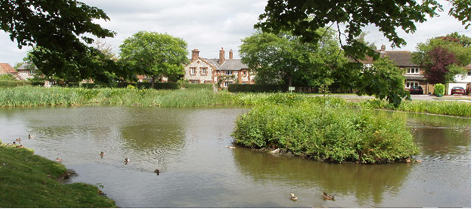IF, AS seems likely following the latest reports coming out of Westminster, the Chilterns Area of Outstanding Natural Beauty (AONB) is to be extended and then promoted to a National Park, the consequences are going to be interesting, to say the least, in Penn and Tylers Green.
Like many boundaries, the boundary of the AONB wriggles its way through Penn and Tylers Green offering increased countryside protection on the AONB side and arousing the interest of housing developers on the other.
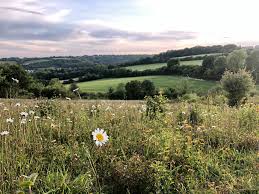
Thus, the left hand side of Hammersley Lane (going towards Wycombe) remains open countryside with no likelihood of housing development because it’s in the AONB.
The right hand side however, which includes the Gomm Valley – the last untouched dry Chilterns valley in the Wycombe area containing as it does a nature reserve and Site of Special Scientific Interest – is exactly the sort of land that should be protected by the AONB but isn’t.
Consequently development on that side of the lane is rife and we await a planning application for hundreds of houses in the valley itself.
Natural England, the Government quango, has been given the job of looking in detail at where the AONB in the Chilterns (and the Cotswolds) could be extended and it is expected to publish its ideas for public consultation next year.
The word from Westminster is that once that process is completed and agreed – probably two or three years from now – a bill would be presented to convert the enlarged Chilterns AONB into a National Park, offering even greater protection against development while preserving and enhancing the existing countryside and natural environment. That could take another year or two.
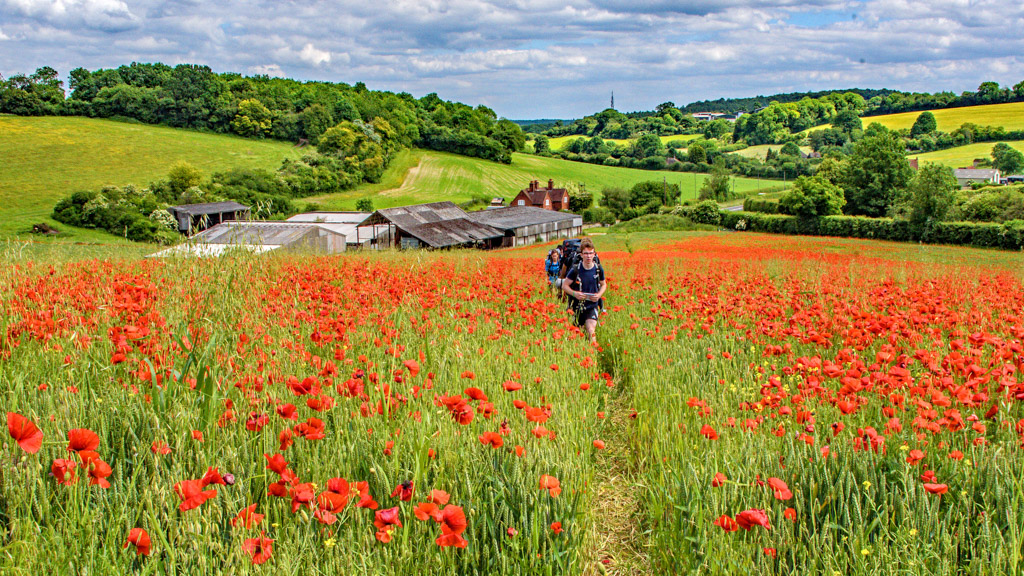
So far so good…unless you are a housing developer.
Taylor Wimpey, the house builders who have recently bought much of the Gomm Valley, will not want to find themselves in possession of land they can’t develop because it has become part of a National Park. So naturally they will present a planning application and try to get the valley developed before that happens.
All of which presents local politicians with a dilemma.
One of the reasons the National Park scheme has shot up the agenda is because the electors of Chesham and Amersham (which includes Penn) gave the Government a bloody nose in June’s by election by turning a safe Tory seat into a Liberal Democrat one – many citing their unhappiness about green field housing development (and the dreaded HS2) as their reason to change their allegiance.
Local opposition to development in the Gomm Valley is strong, especially after so many residents enjoyed the benefits of its peace and tranquility in the lockdowns.
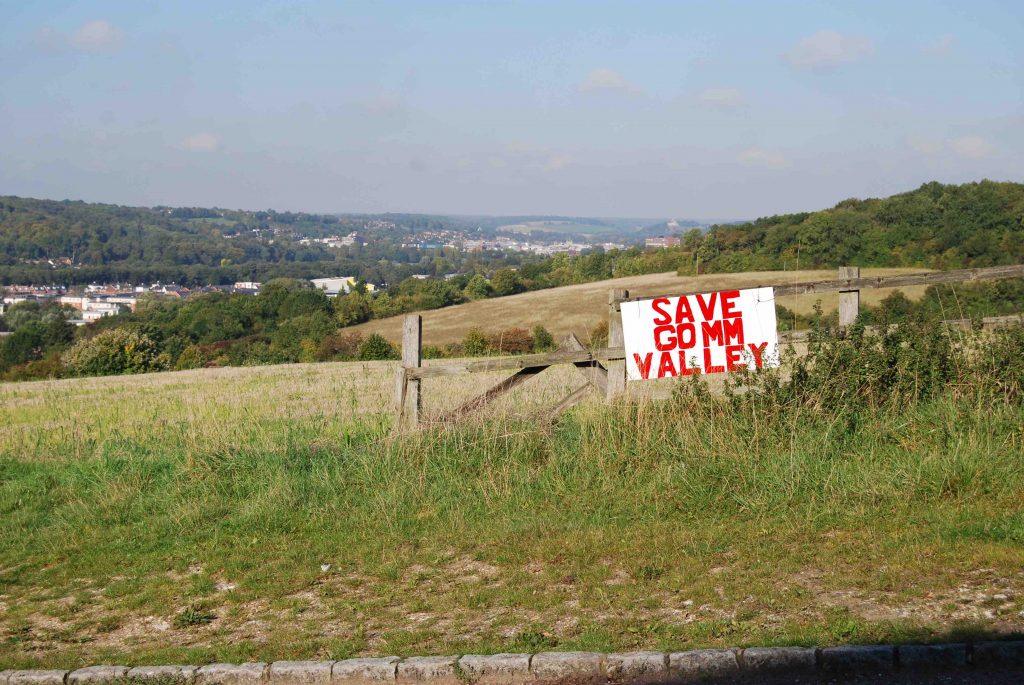
In Buckinghamshire the new unitary council is working on a county-wide local plan which will indicate where councillors want future housing development in the county to be.
In the current political climate – and with the emphasis now on preserving unspoilt countryside – that is unlikely to include the Gomm Valley.
But the new local plan is not likely to be set in concrete for another year or two.
So when the planning application for homes in the Gomm Valley drops on their desks in a few weeks or months can – or would – the politicians stall on the decision until the valley gets AONB or National Park protection, knowing that in doing so the developers may threaten legal action to force their plans through before AONB/National Park restrictions apply?
Watch this space.
New MP squares up to HS2
MEANWHILE Penn’s new MP, Sarah Green, is trying to take up the mantle of her Chesham and Amersham predecessor, the late Cheryl Gillan, as HS2’s nemesis.
In one of her first Parliamentary actions she has laid down what’s called an Early Day motion calling on the Government to review HS2’s work in the Chilterns and calling for an independent inquiry into concerns by environmentalists into the damage the current tunnelling may cause to the fragile chalk aquifer.
Some geologists believe vibrations from the tunnelling machines could alter water courses and threaten the existence of the rivers Chess and Misbourne.
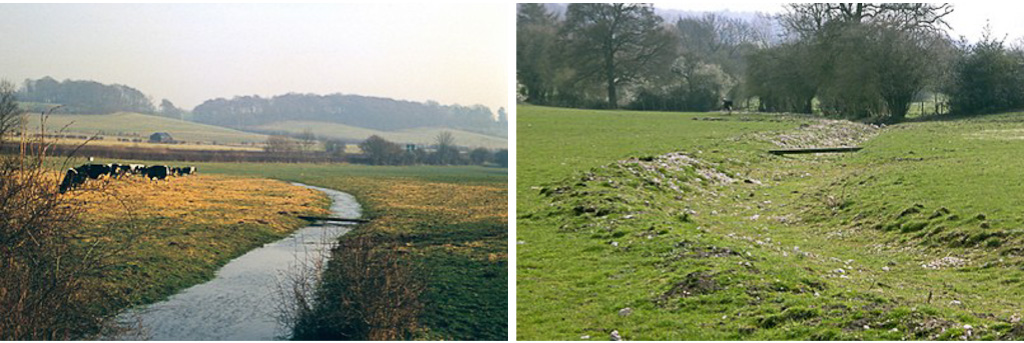
Her action is unlikely to get anywhere as Early Day motions are often just an exercise to test the strength of feeling amongst other MPs. So far, aside the other Lib Dems, she’s received support from Green MP Caroline Lucas and Democratic Unionist Jim Shannon.
*MPs will debate HS2 on 13 September after a Parliamentary petition topped 100,000 signatures calling for work on the railway to be stopped immediately and the legislation that permitted it in the first place to be reversed.
The debate comes as the company admitted it was receiving more complaints than ever from people in this area upset by the construction. HS2 boss Mark Thurston said the company had appointed new staff “to ensure better alignment between HS2’s construction pledges and its constructors’ actions.”
August 1941. Times are hard; things look bleak, but in Penn and Tylers Green a steely determination to enjoy summer
80 years ago in the village
BY AUGUST 1941 the second anniversary of the war was fast approaching and things were not going well. In Russia the advancing German army had reached Lenningrad. In the Atlantic thousands of tonnes of supplies meant for Britain were sunk.
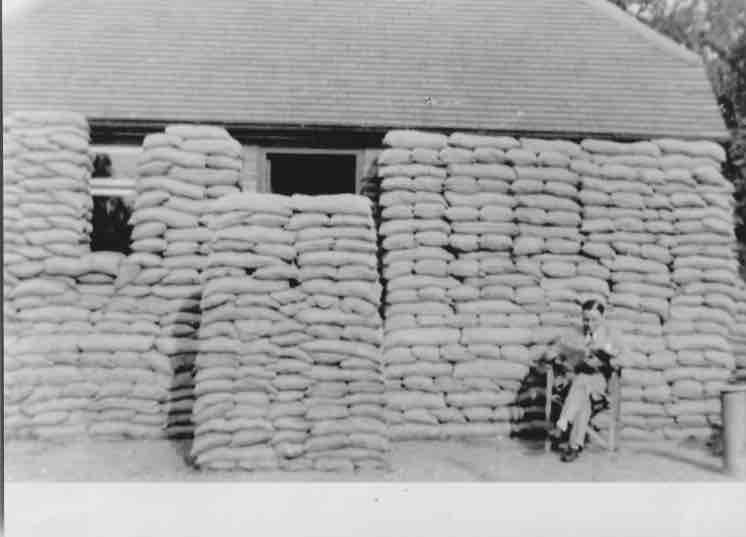
Here, although bombing raids had eased, there were still alerts virtually every night. On 28 August bombs fell on Micklefield Farm, fortunately landing on fields causing no injury or damage.There were food shortages – the local council formed a food control committee to ensure that what food there was was distributed fairly to shops around the area.
People were edgy. Several were hauled before the courts and fined a £1 for allowing a light to shine at night, in contravention of black-out regulations. People were also arrested for petty pilfering from local allotments and in Marlow a shopkeeper was fined £1 for selling a can of baked beans at 5d more than the regulated price…an oversight, he claimed.
Locally, farmers were under pressure to produce maximum amounts of food but they fretted because they didn’t have enough workers to bring in the coming harvest.
Land Army girls were not enough to make up the shortfall so “schoolboy harvesting centres” were set up around Bucks, including here in Penn, enabling lads on school holidays to harvest crops until they returned to school in September.
But, despite the hardships, the stress and the fear, people here were not going to let the war deprive them of their summer.
August Bank Holiday was on the first Monday of the month and hundreds defied Government requests to stay at home because of petrol shortages. They didn’t venture far – Marlow and Bourne End were packed as hundreds converged for a walk by the river – while the Wycombe Methodists Sunday School trip was a visit to our village for “an interesting tour of Penn and Tylers Green, followed by tea and a concert in the schoolroom.”
Penn and Tylers Green Football Club held regular dances at the village hall with all the proceeds going to the dependents of club members who were serving in the armed forces.
The Women’s Institute summer fete, also at the village hall, attracted most of the village with games such as “guess the weight of the cabbage” and “stabbing floating corks”; while at the village show a special prize was given to the person who sculpted the head of the Italian dictator Mussolini out of a large potato. The spud was then thrown into the communal soup pot.
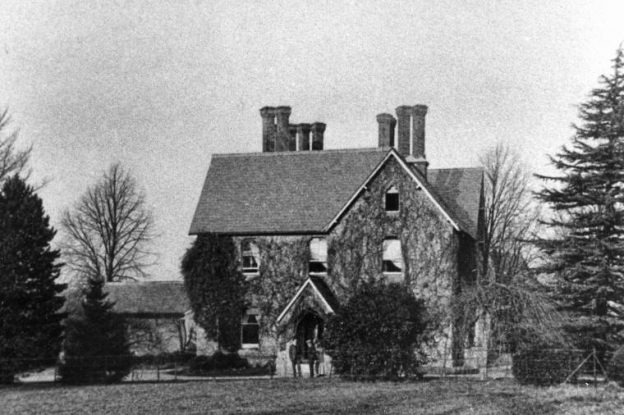
On the common, boys who were German Jewish refugees – living at the vicarage in Hammersley Lane which had been vacated by the vicar and wife for the duration of the war for their use – held regular boxing tournaments, cheered on by enthusiastic villagers.
But the greatest communal effort resulted in the Penn and Tylers Green Spitfire Fund handing over £330/5/5d as the village’s contribution to building Spitfires for the war effort. The money – the equivalent of more than £6,000 today – had been raised in just a few weeks from a hard-pressed population of just a few hundred adults.
*Now the reference libraries are open again after the pandemic, I am able to resume the monthly look at life in the village 80 years ago. I’ll publish future reports together with past ones in the Times Past section of this blog over the coming weeks and also try and catch up on the months that have been missed since the first lockdown.
You can contact this blog by emailing peter@pennandtylersgreen.com The blog will be next updated in September.
